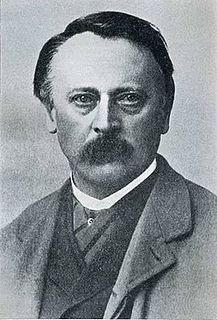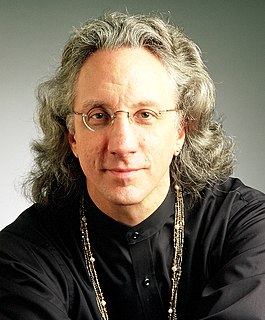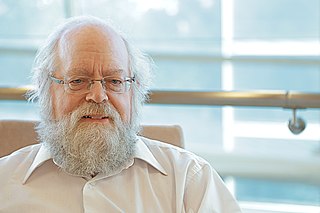A Quote by Franz Hartmann
God does not redeem the personal man by death. He redeems himself by freeing himself from the personality of man.
Related Quotes
For the essence of sin is man substituting himself for God [Gen. 3:1-7], while the essence of salvation is God substituting himself for man [2 Cor. 5:21]. Man asserts himself against God and puts himself where only God deserves to be; God sacrifices himself for man and puts himself where only man deserves to be.
The Vedanta teaches men to have faith in themselves first. As certain religions of the world say that a man who does not believe in a Personal God outside of himself is an atheist, so the Vedanta says, a man who does not believe in himself is an atheist. Not believing in the glory of our own soul is what the Vedanta calls atheism.
Man is a fallen star till he is right with heaven: he is out of order with himself and all around him till he occupies his true place in relation to God. When he serves God, he has reached that point where he doth serve himself best, and enjoys himself most. It is man's honour, it is man's joy, it is man's heaven, to live unto God.
It is a great good to be given over to the will of God. Then the Lord alone is in the soul, and no other thought, and she prays to God with a pure mind. When the soul is entirely given over to the will of God, then the Lord Himself begins to guide her, and the soul learns directly from God ... A proud man does not with to live according to the will of God. He likes to direct himself, and does not understand that man does not have enough understanding to direct himself without God.
As Lucretius says: 'Thus ever from himself doth each man flee.' But what does he gain if he does not escape from himself? He ever follows himself and weighs upon himself as his own most burdensome companion. And so we ought to understand that what we struggle with is the fault, not of the places, but of ourselves
The Great Man's sincerity is of the kind he cannot speak of, is not conscious of: nay, I suppose, he is conscious rather of insincerity; for what man can walk accurately by the law of truth for one day? No, the Great Man does not boast himself sincere, far from that; perhaps does not ask himself if he is so: I would say rather, his sincerity does not depend on himself; he cannot help being sincere!
Technologically, modern man does everything he can do-he functions on this single boundary principle. Modern man, seeing himself as autonomous, with no personal-infinite God who has spoken, has no adequate universal to supply an adequate second boundary condition; and man being fallen is not only finite, but sinful. Thus man's pragmatically made choices have no reference point beyond human egotism. It is dog eat dog, man eat man, man eat nature.





























